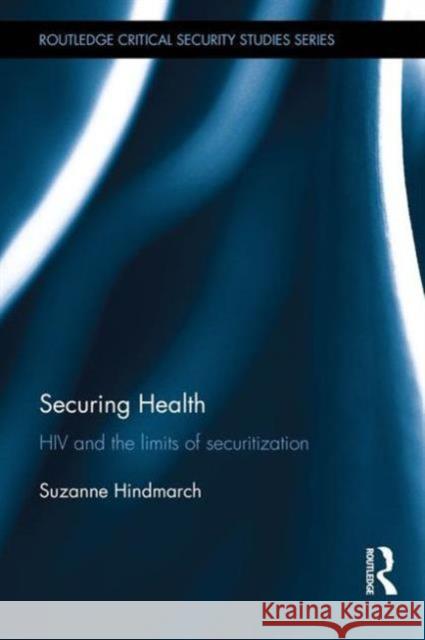Securing Health: HIV and the Limits of Securitization » książka
Securing Health: HIV and the Limits of Securitization
ISBN-13: 9781138860384 / Angielski / Twarda / 2016 / 186 str.
Securing Health: HIV and the Limits of Securitization
ISBN-13: 9781138860384 / Angielski / Twarda / 2016 / 186 str.
(netto: 766,51 VAT: 5%)
Najniższa cena z 30 dni: 730,42
ok. 16-18 dni roboczych.
Darmowa dostawa!
This book is a critical inquiry into the framing of health and disease in security terms.
In particular, the book examines what happens in the United Nations when the ostensibly low politics of global health meet the high politics of security, and when the logic of security comes to shape global health initiatives. More specifically, the book s empirical objective is to examine the efficacy of securitization as a transformative strategy, while its theoretical objective is to move beyond the current impasse between two variants of securitization theory: the discursively-focused Copenhagen School (mainly associated with Waever, Buzan and de Wilde) and the practice-focused sociological or Paris School (mainly associated with Huysmans, Balzacq, and Bigo). Through close investigation of HIV securitization in the UN system, in which a small number of elite actors sought to position HIV as a security threat and thereby catalyse change in the global HIV response, the book develops a novel empirical analysis of the causes and consequences of HIV securitization, and a novel theoretical framework that unites the Paris and Copenhagen schools of securitization theory.
Theoretically, the book presents a powerful new framework treating securitization as a policy process. The framework draws together several strands of securitization theory often seen as opposed, drawing in novel ways from policy process literature to develop a framework wherein securitization is studied as a policy process rather than a speech act (as in the Copenhagen School) or assemblage of technical practices (as in the Paris School). This enables the systematic examination of securitization as it unfolds over time, through continuous and contested meaning-making processes. Empirically, the book draws attention to the framing of HIV in the UN system as a specifically "African" threat a framing that has been overlooked in existing considerations of HIV securitization, but which the author argues was a crucial factor in shaping the meaning of HIV is a security threat in the UN, and the policy and programmatic outcomes that resulted from HIV securitization.
This book will be of much interest to students of critical security studies, global health, development studies, and IR in general."











